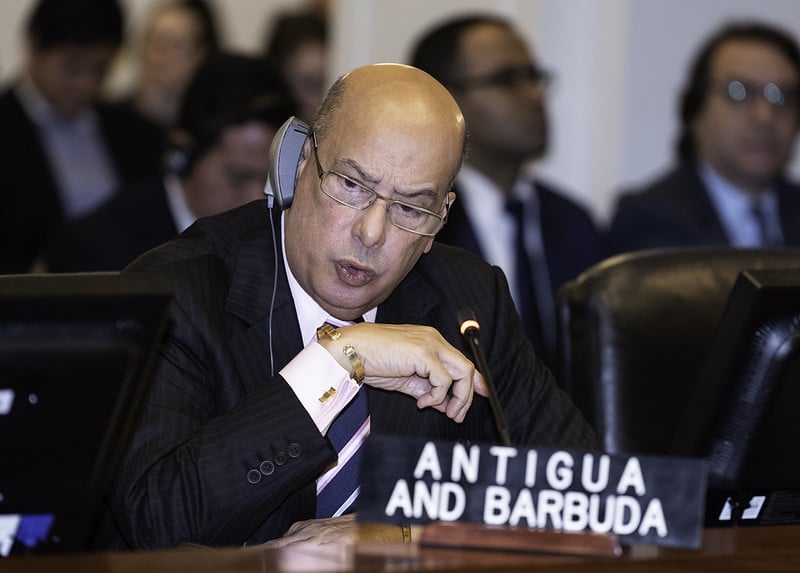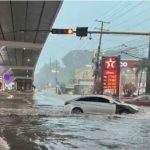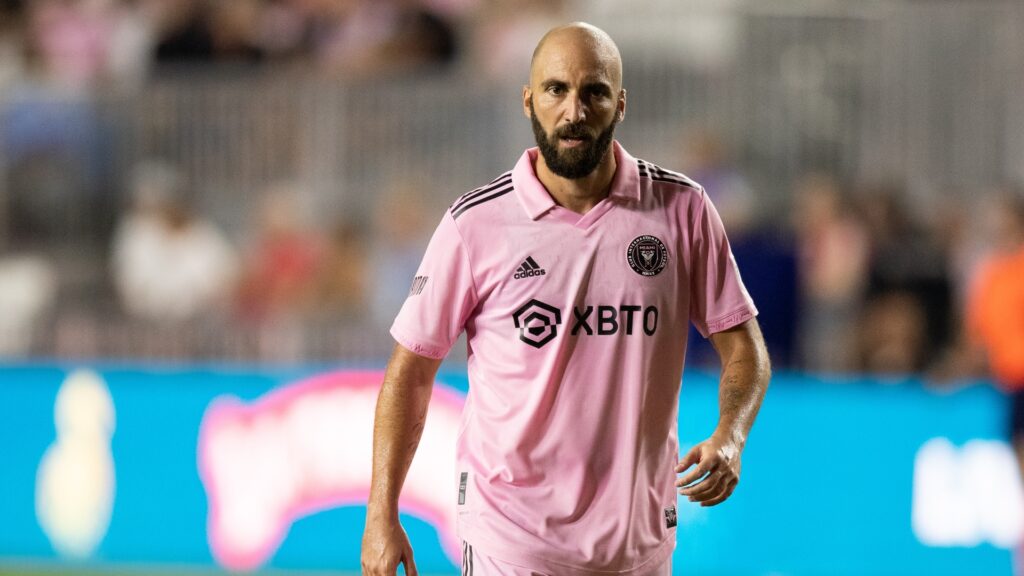The political and human rights crisis in Nicaragua returns to the forum of the General Assembly of Foreign Ministers of the Organization of American States (OAS), scheduled to take place this week in Lima, Peru, in which a new resolution will be addressed that seeks to open the doors to the return of democracy to the country. In This week Y CONFIDENTIALwe spoke with the ambassador to Antigua and Barbados to the OAS, Ronald Sanders.
Antigua and Barbados have voted in favor of condemning the outrages of the regime of Daniel Ortega and Rosario Murillo, summed up Ambassador Ronald Sanders, who announced that this new resolution seeks to give the Ortega regime another opportunity to open a dialogue, although they are aware that the dictatorship will not heed these calls.
Sanders, who was interviewed on the show This week —which is broadcast on YouTube and Facebook due to the censorship of the dictatorship – also assured that the resolution again condemns Ortega for the persecution against the Catholic Churchthe independent press and the release of political prisoners.
From mid-2018 to date, the OAS has approved 14 resolutions about the situation in Nicaragua. Voting has taken place in the two main instances of the regional organization: the General Assembly of Foreign Ministers (four) and the Permanent Council (ten).
The last time this regional forum addressed the crisis in Nicaragua It was last August 12when the Permanent Council He “strongly” condemned the forced closure of NGOs and the harassment against the Catholic Church, and demanded the release of political prisoners.
The document had 27 votes in favor; only one against; four abstentions —Mexico, Bolivia, El Salvador and Honduras—; and two absent countries: Colombia and Nicaragua.
This October 5 begins the General Assembly of the OAS in Peru. Ambassador Ronald Sanders, what is the main topic of this summit?
These summits have themes. But I don’t think anyone pays special attention to them because people come to the OAS to talk about current issues. Important questions facing the organization and its member states. Issues of democracy, rule of law, human rights and economic development. These are all critical issues, especially at this time. So I think that will be the focus of the discussions.
The last resolution of the Permanent Council on Nicaragua was in August of this year condemning the closure of thousands of NGOs, the persecution of the church and journalists, and demanding the release of political prisoners. Will the Nicaraguan crisis be a relevant issue at this summit?
Yes absolutely. It will be because the statutes of the Organization of American States are being violated by the behavior of the Government of Nicaragua. At this time, the countries of the Organization of American States have an obligation to defend the principles that we say we defend collectively.
And those principles include free and fair elections, representative democracy, human rights, freedom of expression, freedom of religion, and freedom of the press. And many, if not all, of the organization’s member states are now convinced that each of these principles is being violated in Nicaragua. So you have to say something and something will be said.
Ambassador Ronald Sanders and the role of Caribbean countries
Since last year, we have seen more Caribbean countries come together to condemn the Nicaraguan government for violations of human rights and democracy. For the first time in June 2021, we saw Barbados, Grenada, Saint Kitts and Nevis, Suriname, and Trinidad and Tobago demanding the release of political prisoners. Why that change?
All Caribbean people are certainly willing to give the Government of Nicaragua the opportunity to rectify and remedy the things that were going wrong in society.
Each one of us, at one time or another, spoke with members of the Nicaraguan government, including their representatives in the OAS, but not only with them, with ministerial representatives that we saw from time to time and we asked them to make sure that these violations, which were occurring slowly over time, needed to stop.
Only after ignoring our efforts and exhortations did the Caribbean countries decide that they now had to start criticizing and condemning Nicaragua’s continued violations. But we gave the Ortega government the opportunity, first of all, to remedy the situation before speaking out against it.
That is not the case of Saint Vincent and the Grenadines, whose prime minister, Ralph Gonsalves, is close to the Ortega government, which even decorated him last July. Why is there this difference with most Caribbean countries and Saint Vincent and the Grenadines?
I cannot speak for the Prime Minister of Saint Vincent, Dr. Ralph Gonsalves. He heads a sovereign country and is the prime minister, and he has the right to formulate his own policy towards every nation in the world, including Nicaragua. He has chosen the position that he has taken, and it is a sovereign right to do so. So I can’t explain why he does it. It’s entirely up to you.
What do you think is the role and importance of the Caribbean countries in the OAS, particularly in dealing with cases such as the situation in Nicaragua or Venezuela?
Our position frankly is that we support the organization and its Inter-American Democratic Charter. We’re free. Freedom-loving countries. We respect religion, the free practice of religion. We respect political and civil rights and freedom of the press. We don’t lock up our political opponents. People are free to have divergent opinions. The media is free to report on those views and make their own comments on them. And they all do, because we believe in a system where, if there is a difference, we discuss it and have a dialogue about it.
We try to present different positions on this, and it is up to the people of the country to decide after hearing all these arguments, which political party they think should govern them. We have free and fair elections, and when those elections are held, we respect the decision of the people. Therefore, that is the position that we take in the OAS, because if we do not take that position, we would be changing our own value system and we will become different countries, different from what we are now, and we will not allow that to happen. Freedom in all aspects of life, in all countries, is essential to our economic prosperity, our economic growth, and the growth of our people.
doDoes the way in which Venezuela currently perceives Nicaragua influence the Caribbean countries?
Well, the way in which Venezuela perceives Nicaragua, that is the sovereign right of Venezuela. They can do it. The fact that they have a position on Nicaragua does not mean that the Caribbean countries have to adopt it. We maintain friendly relations with them and do business, because they are the Government in charge. But that doesn’t mean we approve of everything that happens there.
There is a draft of the resolution on Nicaragua that will be debated at the Summit and it proposes the creation of a high-level commission to try to dialogue with the Nicaraguan regime. What would be the role of this commission if the government has already rejected dialogue with the OAS Secretary General?
We are extending a hand of friendship once again, once again to the Ortega government in Nicaragua. What we don’t want to be accused of is simply slamming the door in his face.
That is why we say that, despite everything, we have urged him to speak. So it’s not the secretary general, by the way, but a high-level team appointed by the Permanent Council, who was going to be talked to. President Ortega did not respond to that invitation.
We have made several other proposals, to which you have not responded. We’re bringing this high-level group back in the hope that you’ll respond, but we don’t expect you to, frankly. We hope that what has happened so far is exactly the same case.
But that is not all that the resolution says. We are being very condemnatory with the treatment of our Catholic people, of the clergy and of the Roman Catholic faith, the treatment of Mother Teresa, of our sisters who were there. The bishop’s treatment (Rolando Álvarez). All this we are criticizing and criticizing very formally.
We are also criticizing the fact that political prisoners remain in jail in Nicaragua in very desperate conditions. And we have asked that these political prisoners be released. We have also drawn attention to the fact that the press has not only been muzzled, but has been almost destroyed. All these things are what we criticize in the resolution that we present. So don’t just focus on what we’ve offered or have a friendship, also recognize that we’re saying things are wrong and there has to be a remedy.
But nonetheless, we are a democratic institution. And although the Ortega government says that it has withdrawn Nicaragua from the organization, that withdrawal will not take place for another year and a half. So for the next 18 months or so, Nicaragua remains officially a member of the Organization of American States, and we’re obligated to do everything we can to reach out to that government and say, look, we’re still interested in helping you remedy the situation and to restore democracy in his country, including finding ways in which free and fair elections can be held and a government elected by the people can govern the country.
For many analysts, the impunity of the Ortega regime, despite the resolutions of the Permanent Council, represents a political failure of the OAS. Does the OAS have pressure or persuasion resources that can help find a way out of the crisis in Nicaragua?
First of all, we have to be invited to the country to do it, and we have not been invited. In fact, what has happened is that every time we have been asked to send a mission, we have been denied and the missions that were there have not been allowed to do their work. You know that the OAS mission was captured and closed by the Ortega government.
So, you know, we’ve tried and we’ve done it within the ability to do something. And remember, we are talking about 34 member states of the organization that have to come to an agreement on what can be done. And everything we can do has to be done within the limitations of the Charter of the United Nations of the Organization of American States and the Inter-American Democratic Charter.


















